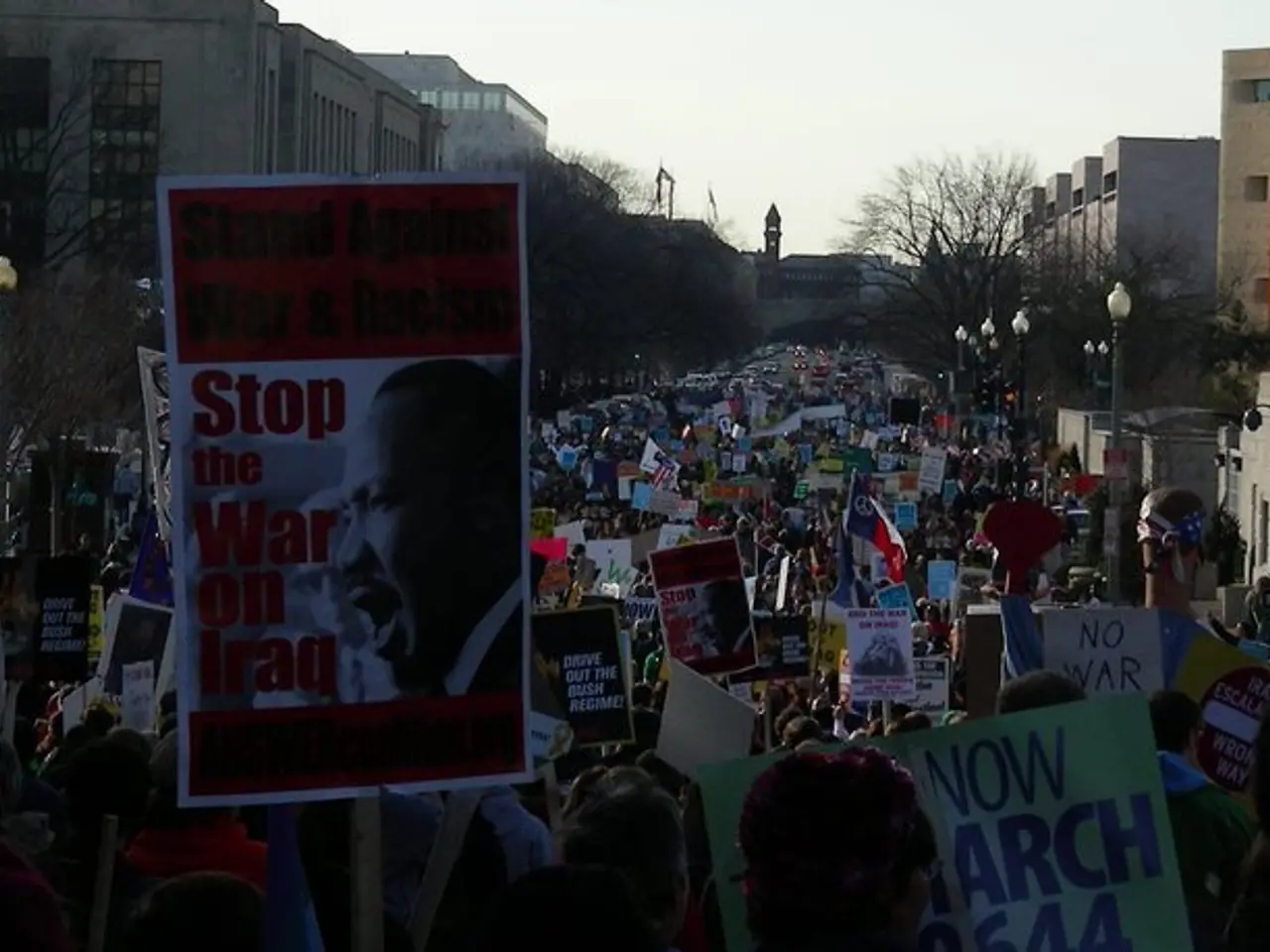Protesters in Washington D.C. voice discontent over the presence of federal law enforcement, halting traffic on a bustling roadway
Washington D.C. has seen an increase in law enforcement presence over the past few days, with the National Guard providing support to local police and federal agents patrolling the city. This comes after President Donald Trump's announcement of taking over the city's police department, a move that has sparked controversy among residents and civil liberties groups.
On Wednesday night, a traffic checkpoint was set up along the city's 14th Street corridor by DC police and federal agents. Multiple cars were temporarily pulled over, and at least one person was handcuffed and taken away. However, as of Wednesday evening, no request had been made for the guard members mobilized in the city to carry their weapons.
The National Guard is not arresting people, but creating a safe environment for other officers. The crowd remained peaceful, with no physical confrontation observed between protestors and law enforcement. However, community members loudly cursed at the officers and yelled phrases like "Shame," "You are the criminals," and "Get the f**k out of here." Some community members also yelled "Take off your mask!" at federal agents who were wearing masks.
DC Mayor Muriel Bowser implored residents to "stay safe" and "be smart." She has not publicly commented on the federal takeover of the city's police department.
The federalization of Washington D.C.'s police force occurred when President Trump invoked Section 740 of the 1973 Home Rule Act, placing the Metropolitan Police Department (MPD) under federal control during a declared public safety emergency. This allows the President to control MPD for 48 hours, extend for 30 days with congressional notification, and possibly longer with congressional approval.
According to the D.C. Police Union, crime dropped by 8% overall within a week of federal takeover, with violent crime down 22%, property crime down 6%, carjackings down 83%, and robberies down 46%. Over 450 arrests were made in the first week, including gang members, contributing to the crime drop. National Guard troops primarily protected federal assets, helping create a safer environment for law enforcement.
However, the federalization has also generated significant controversy. Critics argue it erodes local autonomy, bypasses established sanctuary city policies, and leads to aggressive immigration enforcement as ICE agents took an active role in policing, including requiring MPD to share information with ICE during routine stops. Civil liberties groups denounce the move as an intrusive presidential overreach and warn it sets a dangerous precedent for centralized power over local governments.
On the ground, many arrests are for minor offenses, with some neighborhoods, especially high-crime areas, initially seeing little direct impact from the federal surge. The deployment has also intensified political polarization and raised concerns about militarization and law enforcement accountability.
In conclusion, while the federalization under the Home Rule Act can temporarily place D.C.'s police under federal command and was followed by a notable short-term drop in crime rates, it also generates significant controversy for undermining local governance, increasing federal immigration enforcement involvement, and causing civil liberty concerns within the community.
Read also:
- Weekly happenings in the German Federal Parliament (Bundestag)
- Southwest region's most popular posts, accompanied by an inquiry:
- Discussion between Putin and Trump in Alaska could potentially overshadow Ukraine's concerns
- Massive 8.8 earthquake hits off the coast of Russia's Kamchatka Peninsula, prompting Japan to issue a tsunami alert.




